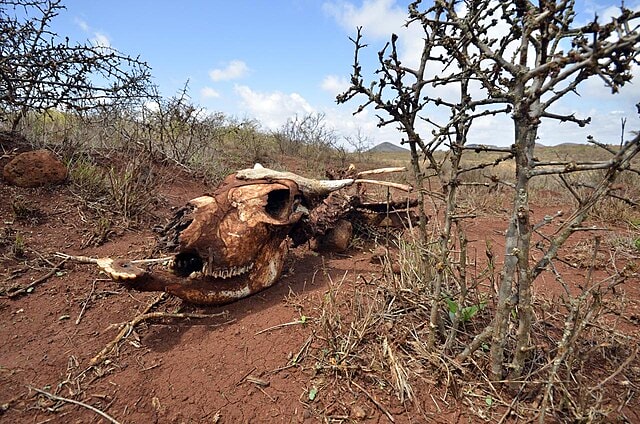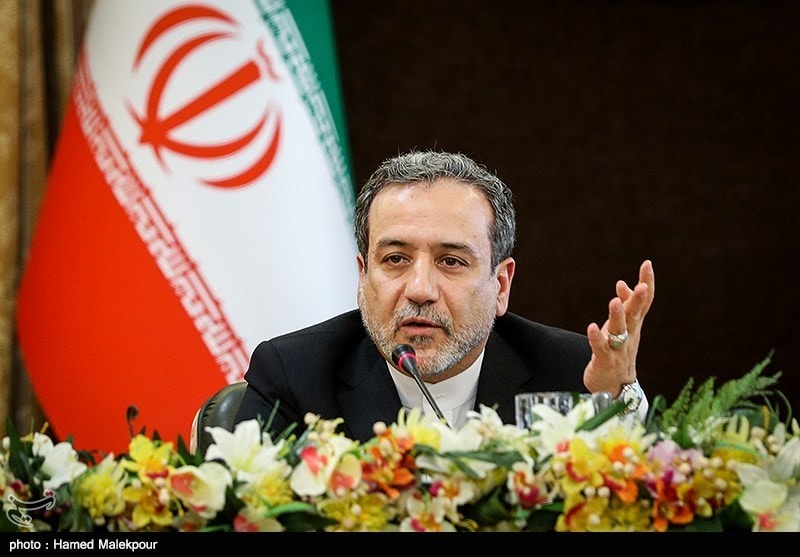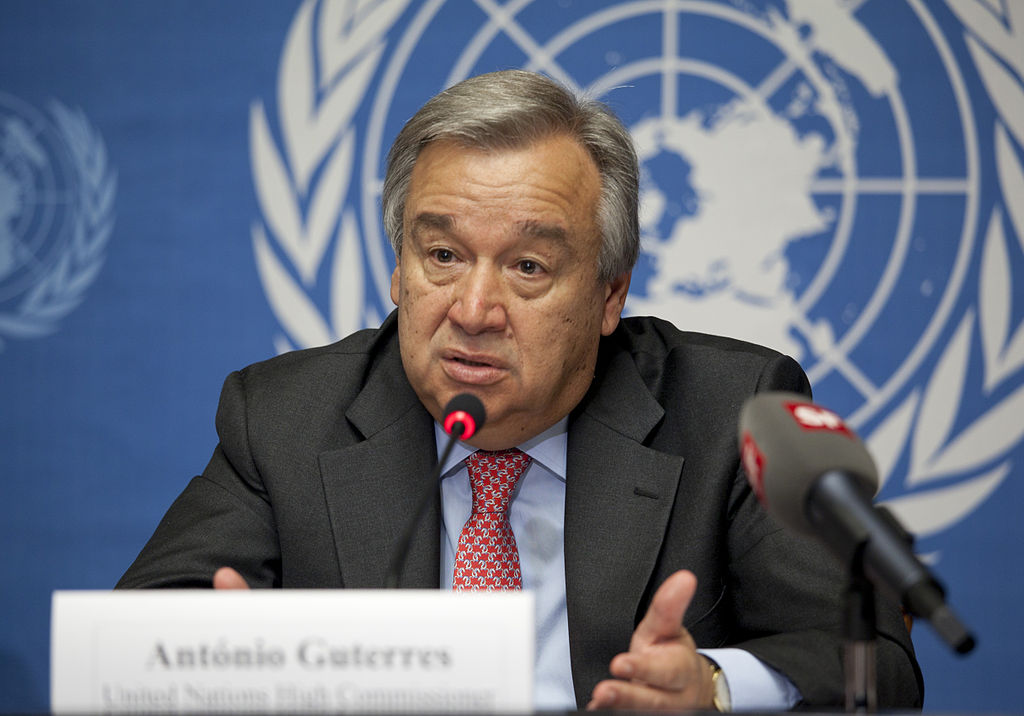I do not wish them [women] to have power over men; but over themselves.
― Mary Wollstonecraft, A Vindication of the Rights of Woman
Recently, the Under Secretary for Civilian Security, Democracy, and Human Rights addressed students at the American University of Cairo:
Women ruled over many of the greatest civilizations – not only in Egypt but all of human history – from Nerfertiti and Cleopatra to the powerful queens of the Fatimid and Mameluke kingdoms. Here in Egypt, women struggled and marched against colonialism, sexism, and discrimination – winning the right to vote, go to school, and fully participate in public life. And here in Cairo in recent years, Egyptian women have taken to the streets alongside men to call for a new future for their country. Over the years, their leadership has inspired women across the region and shaped the course of history.
Women are powerful and changing lives. There are many places in the world where women are living not only in submission, but in abusive, destructive conditions. However, women worldwide are shifting those conditions, getting inspiration and influence from each other’s stories. Power is rarely granted to anyone; you need to claim it for yourself. Many women are claiming their power out of necessity; some are claiming their power to help others. Either way, they are taking action to create a better world.
Rwanda: Managing Without Men
The Rwandan Genocide in 1994 took the lives of nearly 1 million in 100 days and left a country composed of 70% women. Prior to 1994, women only held between 10 and 15 percent of seats in Parliament. Out of sheer necessity with few men available to lead, a desire to rebuild their country and make a living for themselves, women stepped up as leaders in every realm of the nation, including politics, and made changes.
In the late 1990s, the Rwandan government passed legislation for women to have the right to own and inherit land, the right to open a bank account without the authorization of a male figure, and special rights and protections to children. Today women in Rwanda are passing quota legislation to ensure that there are always at least 30% women represented in their Parliament. They are fast-tracking and creating a nation where women have equal say. They are stepping up to make significant changes out of necessity.

Beyond Rwanda for Land Rights and Empowerment
In Africa women produce 80% of the food for consumption and sale. However, women are often deprived of land and excluded from determining agricultural policies. There are a number of programs where women receive funding for food entrepreneurship. And there are a number of women helping change the situations in countries. But as long as property ownership remains out of reach from women, these challenges will continue and women will be unable to have economic success. Out of necessity, women are taking steps to change that.
Swaziland
The case of Nombuyiselo Sihlongonyane v Mholi Sihlongonyane in Swazliland didn’t change land ownership laws, but it was a small step towards equality. To summarize, a woman brought her husband to court because he was mismanaging family assets (men manage family assets under Swazi law). Her husband counter sued her for bringing the matter to the courts. Unfortunately, the case did not change marital law. However, “…the court’s limited decision has only permitted women in the same position as Nombuyiselo to institute and defend legal actions.” It’s not much, but it’s a start. It proves that women can sue and that the notion of equality exists in the law. Next step: women need to get more active to shift traditional family law so women can manage family finances.
Zimbabwe
Zimbabwe women lobbied to changed their Constitution to include legislative quotas of 30% women, similar to Rwanda. Over time, they wanted to change cultural understanding and laws regarding land ownership and management. The constitution was changed in 2013. Women have been trying to run, but it is a struggle. Recently, First Lady Grace Mugabe organized rallies for The Women’s League to support the Constitution to include women. They are currently campaigning that at least one VP post be reserved for them. They are pressing for their voices to be heard.
Uganda
Similarly, in Uganda more women are able to enter political life and change perceptions of women’s roles through quotas. One woman, Rebecca Kadaga, a speaker of Parliament, has been changing the perception of legislation and women’s roles in Uganda. Now she is seen as a potential contender for President.
Overcoming Acid Attacks to Stop Them
In India, Pakistan, many areas of the Middle East and now Colombia, we see the atrocity of acid attacks on women for refusing suitors or exercising their own choice. Some men are victims as well. A number of women claim their power and speak about what happened to them, rather than stay quiet and hide. One gives cosmetic advice. Another is a model/spokeswoman for a brand. A group of women own a café that helps fund rehabilitations of other acid survivors. Although the legislation doesn’t have much impact now, these amazing women have built awareness of what’s happening (like the organization, Make Love Not Scars), influenced and inspired legislation to stop it, and inspire us all worldwide to stand up for injustice and wrongdoing.
In the Photo: Noon Briefing by the Spokesperson for the Secretary-General
Guests: Ms. Phumzile Mlambo-Ngcuka, UN Women Executive Director and Mr. Antonio de Aguiar Patriota (PR Brazil) Chair of the Commission on the Status of Women Bureau, to brief on the upcoming 60th Session of the UN Commission on the Status of Women (14 March). Credit: UN Photo/Loey Felipe
Iran and Saudi Arabia Introduce New Roles for Women
The recent elections in Iran are highly controversial – especially regarding the role of women. A number of women ran for elected positions and women’s political organizations set a target of 30% to get elected. Unfortunately, only 9.4% of the approved candidates were women. However, more women in office doesn’t mean immediate change; the country holds a number of conservative beliefs and maintains traditional ways.
The situation sounds disappointing, but if you look at the situation in a different way, women are including themselves in government to influence change. Even with unchanged traditional ways, the country is expanding its perception of women’s roles to include legislators.
It is similar in Saudi Arabia. Only 17 women are now in elected office in a conservative country. But they ran for office, overcame a number of challenges to reach out to voters directly, and won. These women are now role models.
Do US Women Need to Step Up?
Women in other countries have fought hard for maternity leave, better health care, and equal pay. Recently, the US was criticized by UN representatives for not having it.
“So many people really believe that U.S women are way better off with respect to rights than any woman in the world,” [Frances] Raday [British Delegate] said. Sadly, that is just not true.
–Mattie Kahn, “UN Representatives Are Appalled at the State of Gender Equality in America,” Elle Magazine
But is that a criticism of the government or is it a criticism of American women that we are not standing up for ourselves to make it happen? Women in other countries are asserting their voices for what they need and equality. Maybe American women should insist more and not wait for something that may never come.
I feel inspired reading about women around the world becoming role models and claiming their power to make their homes a better place – economically and legally. Women worldwide are viewing equality as a necessity. There is no economic freedom if we don’t ask for it. There is no legal equality unless we change perceptions, traditions, and beliefs to make it a reality. We cannot wait for someone to bestow power upon us through laws. If we want a better world, we need to make it happen – and that means being involved, claiming power, and causing change to help yourself and others. Fortunately, women are doing this across the world. We are becoming our own role models.
Updated 3.1.2021
Editor’s Note: The opinions expressed here by Impakter.com columnists are their own, not those of Impakter.com. In the Featured Photo: Women perform traditional dance by a sacred tree in Camenasa. Featured Photo Credit: UN Photo/Martine Perret















